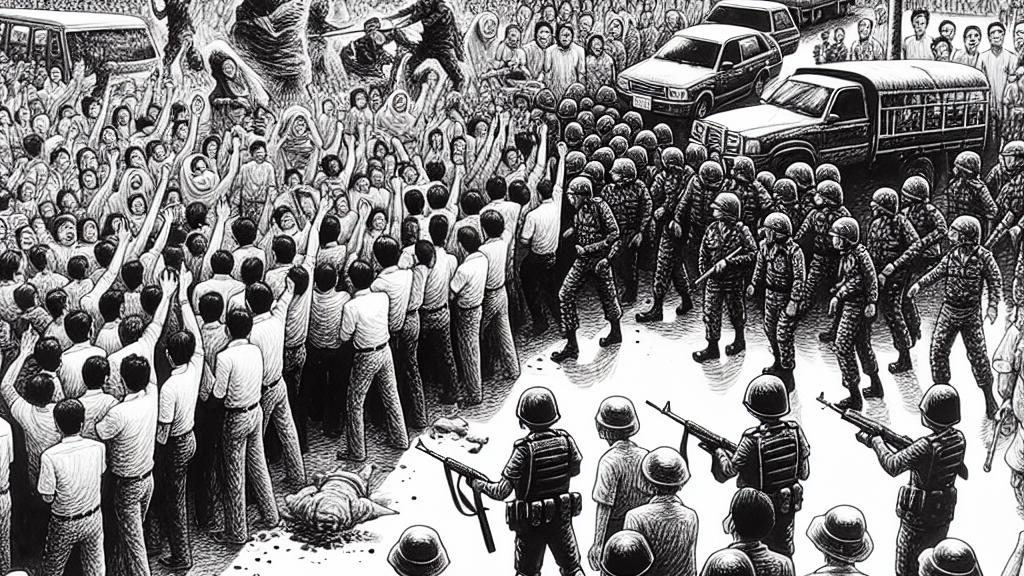Demand for Justice: Calls for Action on Tak Bai Incident
Overview
- Urgent demands for accountability from Prime Minister regarding the Tak Bai massacre.
- Time is of the essence as the 20-year statute of limitations approaches.
- Legal inaction against military suspects sparks public outrage and fervent calls for justice.

The Tragic Tak Bai Incident Unfolded
On October 25, 2004, an incident unfolded in Narathiwat, Thailand, that would later be remembered as the Tak Bai massacre. What began as a peaceful protest demanding the release of local defense volunteers transformed into a scene of horror when security forces intervened with excessive force. Initial reports indicated seven protestors were shot dead, while an additional 78 suffocated tragically in military trucks during their transport to an army camp. This catastrophic event did not just claim lives; it shattered the hopes and dreams of countless families, leaving a deep-seated yearning for justice hanging in the air even after nearly 20 years.
A Race Against Time for Legal Action
With the statute of limitations looming on October 25, 2024, the urgency for justice becomes increasingly palpable. Opposition MP Romadon Panjor has fervently called on Prime Minister Paetongtarn Shinawatra to ensure that all suspects, including high-ranking military figures like Gen. Pisal Wattanawongkiri, face courtroom scrutiny before it's too late. This imminent deadline generates a growing fear among families of victims: what happens if these individuals escape prosecution due to procedural delays? Such a scenario not only reflects a dire failure in the justice system but, more poignantly, indicates a troubling disregard for accountability by those in power.
Public Discontent and Political Reckoning
Amidst this urgent quest for justice, public sentiment has erupted into a fierce wave of activism. As citizens and advocates express their frustrations with the sluggish legal processes, they are no longer just waiting; they are demanding action. Families of the victims have taken bold steps, launching their own lawsuits against powerful officials, asserting their rights in a battle for accountability. This growing wave of activism indicates a significant shift in the political landscape, as people are uniting their voices against perceived injustice, rallying for not only recognition of their sorrow but also a renewed commitment to human rights in Thailand. As the Tak Bai incident continues to resonate within society, the hope for justice remains a powerful, unyielding force, driving collective efforts for change.

Loading...